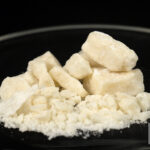The decision to stop drinking is powerful—one that takes courage, clarity, and genuine commitment. However, the method you choose to break free from alcohol’s grip could mean the difference between a successful recovery and a life-threatening medical emergency. While the phrase “going cold turkey” might sound straightforward, even admirable in its resolve, the reality for heavy drinkers is far more complex and potentially dangerous than most people realize.
What Happens When You Stop Drinking Cold Turkey?
When you abruptly stop drinking after prolonged heavy use, your body enters a state of shock. Moreover, alcohol has been essentially running the show in your brain chemistry, and suddenly cutting off that supply triggers a cascade of physical and psychological responses. Your central nervous system, which has adapted to alcohol’s depressant effects, suddenly finds itself without its chemical regulator.
Consequently, what follows can range from uncomfortable to catastrophic. Furthermore, your brain’s neurotransmitters—particularly GABA and glutamate—go haywire trying to reestablish equilibrium. Additionally, this neurological chaos manifests in symptoms that can begin as soon as six hours after your last drink.
Stages of Alcoholism
Understanding where you fall on the spectrum of alcohol use disorder is crucial before considering any cessation method. The progression typically unfolds across four distinct stages:
Early Stage: Drinking becomes a regular coping mechanism. Nevertheless, you maintain your responsibilities and may not recognize problematic patterns yet.
Middle Stage: Tolerance builds significantly. Therefore, you need more alcohol to achieve the same effects, and drinking begins affecting your relationships and work performance.
Late Stage: Alcohol dominates your daily life. Similarly, you experience cravings and may drink to avoid withdrawal symptoms.
End Stage: Physical dependence is severe. In contrast to earlier stages, stopping without medical intervention becomes genuinely dangerous.
Is it Safe to Quit Alcohol Cold Turkey?
Here’s the uncomfortable truth: for moderate drinkers, quitting cold turkey might cause discomfort but rarely poses serious danger. However, for those with severe alcohol dependence—typically defined as consuming large quantities daily for extended periods—stopping suddenly can be fatal.
Indeed, alcohol is one of only two substances (the other being benzodiazepines) where withdrawal can directly cause death. Subsequently, the risk increases dramatically if you’ve been drinking heavily for years, have previously experienced severe withdrawal symptoms, or have underlying health conditions. Therefore, the question isn’t whether you should stop drinking, but rather how you should approach cessation safely.
Alcohol Withdrawal Symptoms
The spectrum of alcohol withdrawal symptoms varies widely based on your drinking history, overall health, and individual physiology. Nevertheless, common manifestations include:
Physical symptoms: Tremors, excessive sweating, rapid heartbeat, nausea, vomiting, headaches, and insomnia plague those in early withdrawal. Additionally, dangerous side effects of alcohol withdrawal include seizures and severe dehydration.
Psychological symptoms: Anxiety, irritability, depression, mood swings, and difficulty concentrating become overwhelming. Furthermore, in severe cases, hallucinations and confusion emerge.
Cardiovascular symptoms: Blood pressure spikes dramatically. Consequently, alcohol withdrawal high blood pressure can strain your heart and increase stroke risk.
Alcohol Withdrawal Timeline

The progression of withdrawal follows a somewhat predictable pattern, though individual experiences vary:
6-12 Hours: Minor symptoms emerge—tremors, anxiety, headaches, and nausea. Nevertheless, these are just the opening act.
12-24 Hours: Symptoms intensify. Moreover, some individuals experience hallucinations during this window.
24-48 Hours: The risk of seizures peaks. Therefore, medical supervision becomes critical during this period.
48-72 Hours: Delirium tremens, if it occurs, typically manifests now. Subsequently, this represents the most dangerous phase of withdrawal.
5-7 Days: For most, acute symptoms begin subsiding. However, psychological symptoms may persist for weeks or months.
Dangerous Side Effects of Alcohol Withdrawal
The risks of quitting alcohol cold turkey extend beyond mere discomfort. Specifically, several potentially lethal complications can arise:
Seizures: Grand mal seizures can occur without warning. Furthermore, these seizures can cause physical injury or death, particularly if you’re alone when they strike.
Cardiac complications: Your heart rate and blood pressure can reach dangerous levels. Consequently, alcohol withdrawal heart palpitations and irregular heartbeat can trigger heart attacks or strokes, especially in those with pre-existing conditions.
Severe dehydration: The combination of sweating, vomiting, and inability to keep fluids down creates a perfect storm. Additionally, electrolyte imbalances can cause cardiac arrhythmias.
Aspiration pneumonia: Vomiting while confused or sedated can lead to aspiration. Similarly, this can develop into life-threatening pneumonia.
What Is Delirium Tremens?
Delirium tremens (DTs) represents the most severe and dangerous form of alcohol withdrawal. Indeed, this condition affects roughly 5% of those experiencing alcohol withdrawal, but its mortality rate—even with treatment—can reach 15%.
The hallmark features of DTs include severe confusion, vivid hallucinations, profound disorientation, extreme agitation, fever, and cardiovascular instability. Moreover, those experiencing delirium tremens often don’t recognize they need help, making the situation even more perilous.
Risk factors for developing DTs include:
- Heavy, prolonged alcohol use (typically years of daily drinking)
- Previous episodes of severe withdrawal or DTs
- Concurrent medical conditions
- History of head trauma or seizures
- Older age and poor nutritional status
Alcohol Withdrawal and Detox Treatment

Medical detoxification provides the safest path for those with severe alcohol dependence. Here at Forward Recovery, we understand that stopping alcohol cold turkey or gradually under medical supervision makes all the difference in outcomes.
Medical detox typically involves:
Professional monitoring around the clock ensures immediate intervention if complications arise. Subsequently, medications like benzodiazepines help prevent seizures and reduce anxiety. Furthermore, nutritional support addresses deficiencies common in long-term drinkers. Additionally, hydration therapy maintains electrolyte balance and prevents complications.
The environment matters too. Therefore, our residential treatment program provides a supportive, structured setting where you can focus entirely on recovery without the triggers and stresses of daily life.
Tips for Quitting Alcohol
If you’ve decided to stop drinking, these strategies can support your journey:
Seek professional assessment first. Never attempt to quit cold turkey without medical evaluation, especially if you’ve been drinking heavily for years. Consequently, understanding your risk level guides the appropriate approach.
Build a support network. Connect with people who understand your journey. Moreover, whether through 12-step programs, therapy, or supportive friends and family, isolation is your enemy.
Address underlying issues. Many people drink to cope with trauma, anxiety, or depression. Therefore, comprehensive treatment addresses these root causes alongside physical dependence.
Create new routines. Your old patterns centered around drinking. Subsequently, establishing new, healthy habits fills the void and reduces temptation.
Prepare for PAWS. Post-acute withdrawal syndrome can persist for months. Nevertheless, knowing these symptoms are temporary helps you persevere through challenging periods.
Health Benefits of Alcohol Cessation
The rewards of sobriety extend far beyond avoiding the dangers of withdrawal:
Short-term benefits emerge quickly. Within weeks, your sleep improves dramatically. Furthermore, your liver begins repairing itself, blood pressure normalizes, and mental clarity returns.
Long-term benefits compound over time. Subsequently, your risk of liver disease, certain cancers, and cardiovascular problems plummets. Additionally, relationships heal, financial stability improves, and you rediscover joy in simple pleasures.
Perhaps most importantly, you reclaim your autonomy. Instead of alcohol dictating your decisions, you steer your own ship again.
Conclusion
The decision to stop drinking represents a pivotal moment—one that deserves to be approached with both determination and wisdom. While the phrase “quitting alcohol cold turkey” might sound like a test of willpower, the reality is that severe alcohol dependence requires medical intervention to ensure safety.
Understanding what happens when you stop drinking alcohol suddenly can literally save your life. The symptoms of quitting alcohol cold turkey range from manageable discomfort to life-threatening emergencies, and knowing the difference empowers you to make informed decisions about your path forward.
At Forward Recovery, we’ve guided countless individuals through safe, medically supervised detoxification and into lasting recovery. Because ultimately, the goal isn’t just to stop drinking—it’s to build a life worth living without alcohol.
Frequently Asked Questions
Q: Can you die from quitting alcohol cold turkey? A: Yes, alcohol withdrawal can be fatal, particularly for heavy, long-term drinkers. Complications like seizures, delirium tremens, and cardiac events can prove deadly without medical supervision. This is why professional detox is crucial for anyone with severe alcohol dependence.
Q: How long do alcohol withdrawal symptoms last? A: Acute withdrawal symptoms typically peak within 24-72 hours and subside within 5-7 days. However, post-acute withdrawal syndrome (PAWS) can persist for weeks or months, causing ongoing anxiety, sleep disturbances, and mood fluctuations.
Q: Is it better to quit drinking cold turkey or taper off gradually? A: For heavy drinkers, neither approach should be attempted without medical guidance. Medical detox provides the safest option, using medications to prevent complications while monitoring vital signs. A medically supervised taper may be appropriate in some cases, but attempting to self-taper is rarely successful and can be dangerous.
Q: What are the first signs of alcohol withdrawal? A: Initial symptoms typically appear 6-12 hours after your last drink and include tremors (especially in the hands), excessive sweating, anxiety, nausea, headaches, and insomnia. If you experience these symptoms, seek medical attention immediately.
Q: Can I detox from alcohol at home? A: Home detox is only safe for those with mild alcohol dependence and no history of severe withdrawal symptoms. Anyone who has been drinking heavily for extended periods, has experienced withdrawal seizures previously, or has underlying health conditions should absolutely detox under medical supervision to avoid potentially fatal complications.
Sources
[1] Substance Abuse and Mental Health Services Administration. (2021). Key Substance Use and Mental Health Indicators in the United States: Results from the 2020 National Survey on Drug Use and Health. – https://www.samhsa.gov/data/sites/default/files/2021-10/2020_NSDUH_Highlights.pdf
[2] National Institute on Alcohol Abuse and Alcoholism. The Cycle of Alcohol Addiction. – https://www.niaaa.nih.gov/publications/cycle-alcohol-addiction
[3] Mirijello, A., et al. (2021). Identification and Management of Alcohol Withdrawal Syndrome. American Family Physician, 104(3), 253-262. – https://www.aafp.org/pubs/afp/issues/2021/0900/p253.html
[4] Saitz, R. (2013). Alcohol Withdrawal. American Family Physician, 88(9), 589-595. – https://www.aafp.org/pubs/afp/issues/2013/1101/p589.html
[5] Long, D., et al. (2017). Outpatient Management of Alcohol Withdrawal Syndrome. Cleveland Clinic Journal of Medicine, 83(1), 67-79. – https://www.ccjm.org/content/ccjom/83/1/67.full.pdf
[6] Schuckit, M. A. (2014). Recognition and Management of Withdrawal Delirium (Delirium Tremens). New England Journal of Medicine, 371, 2109-2113. – https://pmc.ncbi.nlm.nih.gov/articles/PMC4606320
[7] Muncie, H. L., et al. (2013). Outpatient Management of Alcohol Withdrawal Syndrome. American Family Physician, 88(9), 589-595. – https://pmc.ncbi.nlm.nih.gov/articles/PMC4515358/pdf/nihms709673.pdf
[8] Goodson, C. M., et al. (2017). Use of an Alcohol Withdrawal Protocol in Medical Inpatients. BMJ Open, 7(12). – https://pmc.ncbi.nlm.nih.gov/articles/PMC5942469/pdf/bmjopen-2017-020673.pdf
[9] National Institute on Alcohol Abuse and Alcoholism. Tips to Try: Thinking About a Change. Rethinking Drinking. – https://rethinkingdrinking.niaaa.nih.gov/thinking-about-change/tips-try
[10] National Institute on Alcohol Abuse and Alcoholism. Building Your Drink Refusal Skills. Rethinking Drinking. – https://rethinkingdrinking.niaaa.nih.gov/tools/worksheets-more/building-your-drink-refusal-skills






Leave a comment
You must be logged in to post a comment.